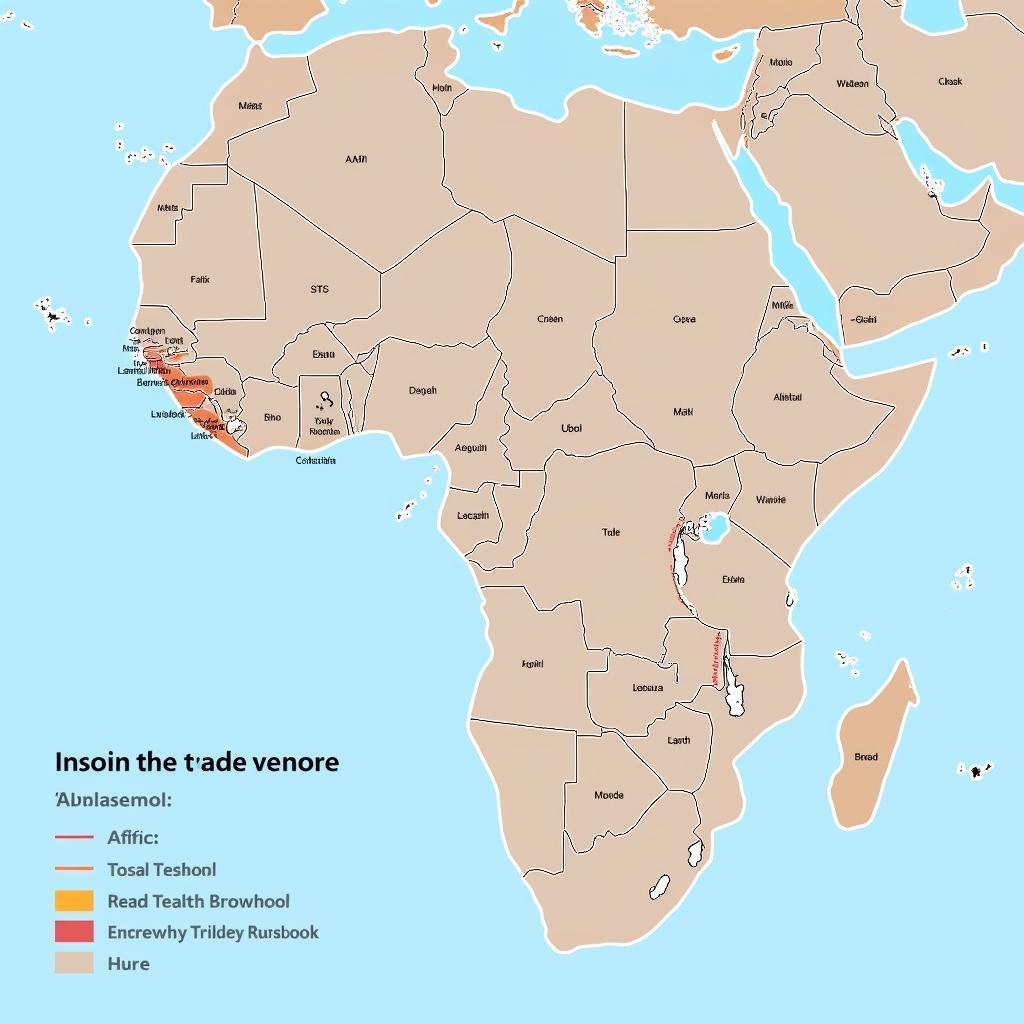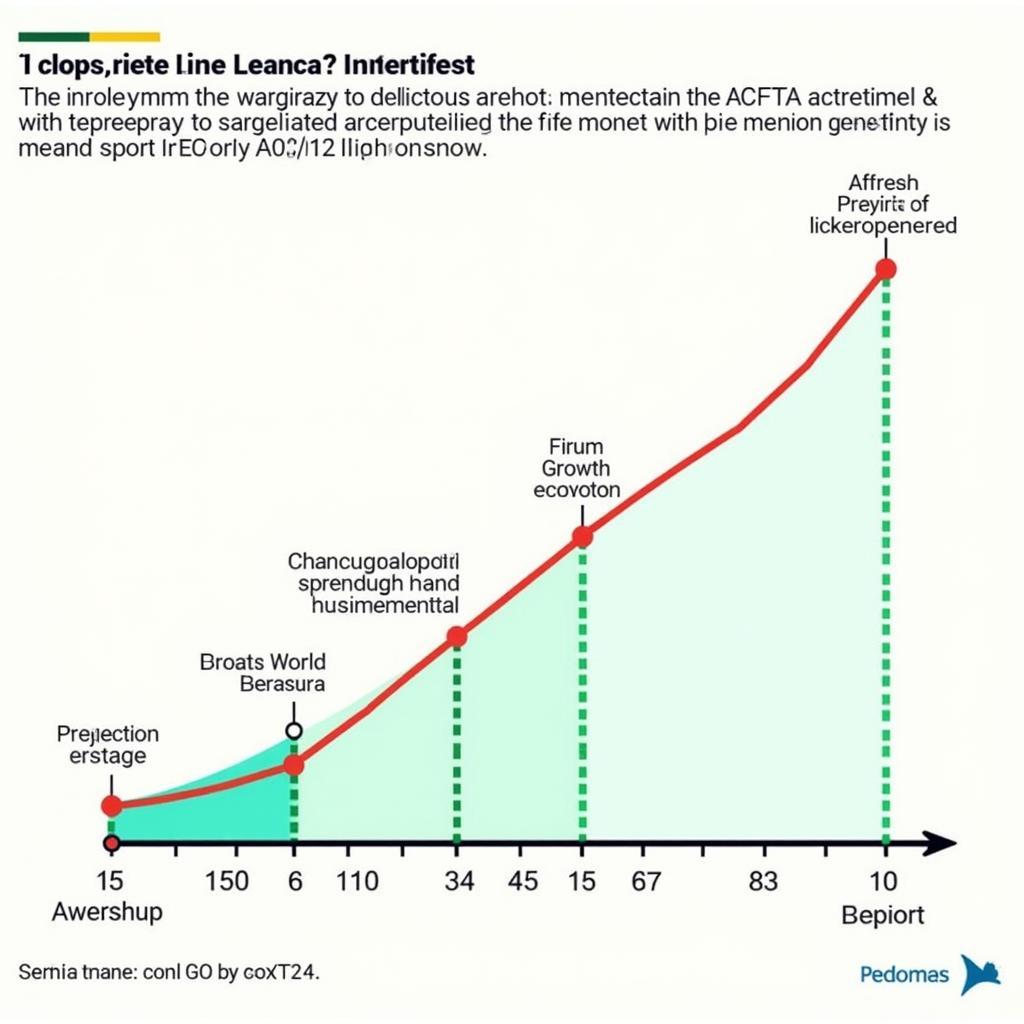Unlocking Africa’s Potential: The African Free Trade Area
The African Free Trade Area (AfCFTA) is poised to revolutionize the African continent, creating a single market for goods and services, fostering economic growth, and boosting intra-African trade. This ambitious initiative aims to break down trade barriers and unlock the immense potential of the African economy. african continental free trade area agreement
What is the African Continental Free Trade Area?
The AfCFTA is a landmark trade agreement established to create a continental market for goods and services across Africa. It aims to eliminate tariffs and non-tariff barriers, facilitate the movement of capital and people, and ultimately promote sustainable and inclusive socio-economic development across the continent. The AfCFTA agreement was signed in Kigali, Rwanda, on March 21, 2018, and entered into force on May 30, 2019.
The Benefits of the African Free Trade Area
The AfCFTA offers numerous potential benefits for African nations. Reduced tariffs will lead to increased trade among African countries, stimulating economic growth and creating new jobs. The agreement will also promote industrialization and diversification of African economies. By streamlining trade processes and regulations, the AfCFTA will make it easier for businesses to operate across borders, further enhancing regional integration.
- Increased Intra-African Trade
- Economic Growth and Job Creation
- Industrialization and Diversification
- Enhanced Regional Integration
Challenges and Opportunities of the AfCFTA
While the potential benefits are significant, the AfCFTA also faces various challenges. Addressing infrastructure deficits, harmonizing regulations, and building capacity are crucial for the agreement’s success. However, these challenges also present opportunities for investment and development.
Addressing Infrastructure Deficits
Inadequate infrastructure, including transportation and communication networks, can hinder trade and limit the AfCFTA’s impact. Investing in infrastructure development is crucial to facilitate the smooth flow of goods and services across the continent.
Harmonizing Regulations
Differing regulations and standards across African countries can create complexities for businesses. Harmonizing these regulations is essential to simplify trade processes and reduce bureaucratic hurdles.
 Map of Africa showing potential trade routes under the AfCFTA
Map of Africa showing potential trade routes under the AfCFTA
Building Capacity
Many African countries lack the capacity to fully implement the AfCFTA’s provisions. Building institutional capacity, training customs officials, and providing technical assistance are essential to ensure effective implementation.
“The AfCFTA presents a unique opportunity for Africa to transform its economic landscape,” says Dr. Adebayo Adedeji, a renowned economist specializing in African trade. “By addressing these challenges head-on, African nations can unlock the full potential of this historic agreement.”
How Will the African Free Trade Area Impact Businesses?
The AfCFTA will significantly impact businesses operating in Africa. It will open up new markets, increase competition, and create opportunities for expansion. Companies will need to adapt to the changing landscape and leverage the benefits of the agreement. african continental free trade area regional organizations africa african continental free trade area pdf
New Markets and Increased Competition
The AfCFTA will create a larger market for businesses, enabling them to reach new customers across the continent. This increased market access will also lead to greater competition, pushing businesses to innovate and improve their offerings.
Opportunities for Expansion
The agreement will facilitate cross-border trade, making it easier for businesses to expand their operations into new African markets. This expansion can lead to increased revenue, job creation, and economic growth.
 Graph showing projected economic growth from the AfCFTA
Graph showing projected economic growth from the AfCFTA
“The AfCFTA is a game-changer for African businesses,” states Ms. Fatima Hassan, a trade consultant with extensive experience in African markets. “Companies that embrace the opportunities presented by the agreement will be well-positioned for success in the years to come.” african continental free trade area afcfta african continental free trade area 2018
Conclusion
The African Free Trade Area represents a transformative moment for Africa. By breaking down trade barriers and fostering economic integration, the AfCFTA has the potential to unlock significant economic growth, create jobs, and improve the lives of millions of Africans. The successful implementation of this agreement will require concerted efforts from African governments, businesses, and regional organizations, but the potential rewards are immense.
Need support? Contact us 24/7: Phone: +255768904061, Email: [email protected], or visit us at Mbarali DC Mawindi, Kangaga, Tanzania.

